|
|
| |
Corcovado National Park
|
| |
|
|
Size: 41.788 hectares.
Distance from San José: 335 kilometers.
Trails: Yes.
Dry season: January through March. |
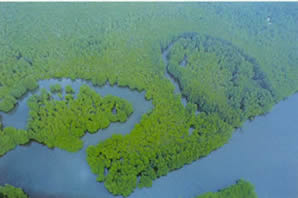 |
| |
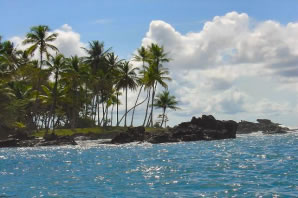 |
Corcovado National Park located in the Osa peninsula, in the southwest corner of the country is an undeniably beautiful place, considered to be one of the most important natural preserves in the Americas. This virgin rain forest park invites superlatives from all who visit. The captivating visual beauty of its forest and of its coastline, with miles of uninhabited beaches and roaring cascades, draws visitors from all over the world. |
| |
|
There are 8 main habitats in this park, mountain forest, cloud forest, alluvial plains, swamp and holillo forest, fresh water herbaceous swamp, mangrove swamp and a rocky coastline.
At least thirteen distinct vegetation types can be seen in close proximity, including mangroves, palm swamps and blood weed forest making Corcovado a botanist's dream. |
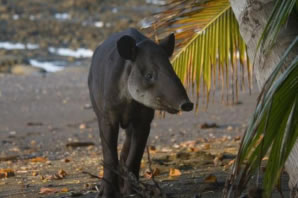 |
| |
|
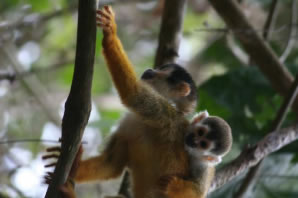 |
With 500 species of trees, 140 species of mammals, 367 species of birds, 40 species of freshwater fishes and 117 species of amphibians recorded here, it is easy to understand why Corcovado National Park has been called "the most biologically intense place on Earth" by National Geographic. |
| |
|
Jaguars, giant anteaters, hundreds of white-lipped peccaries, tapers, red brocket deer, margay cats, spider monkeys, and a host of rare rain forest animals inhabit the vast reaches while poisonous frogs, snakes. and other lizards live surrounding the crocodile-filled lagoon at the park's center.
The foundation beneath Corcovado consists of pillow basalts and gabros, possibly 50 to 56 million years old, however sedimentary layers have been uncovered which date as far back as 65 to 70 million years old. The park is located in the Osa peninsula, in the southwest corner of the country. |
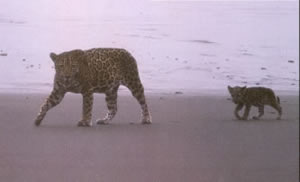 |
| |
|
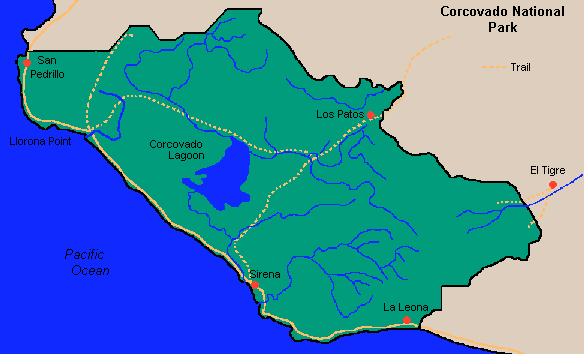
Corcovado National Park has been called
"The most biologically intense place on Earth"
by National Geographic. |
| |
| Map of Costa Rica and its National Parks |
| |
|
|





